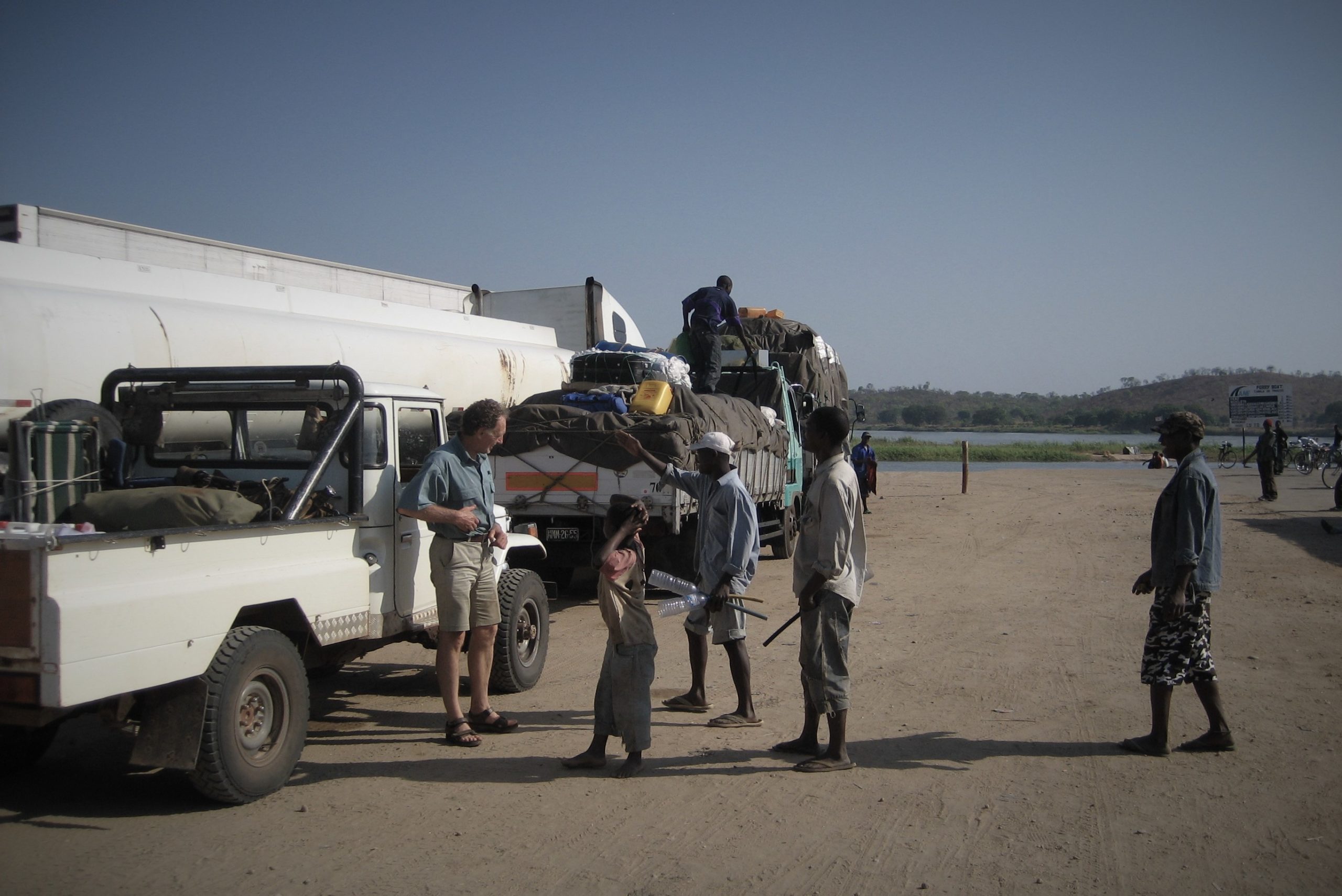Journeys back.
“At the ferry staging post, Sunday morning, just after sunrise,” the note under the pic read. Even at this hour it was pulsing with carefree idleness. In a thin haze of river fog and blue-grey exhaust fumes, big diesels with commercial loads throbbed at idle, and many smaller trucks and pickups and cars groaned under loads well beyond capacity. People drifted around, some from the waiting vehicles, others just there. There was what could pass as a queue, but some, parked around, also seemed to lay claim to a slot.
In Mozambique at the time there were only two places to get across the Zambezi. One was the Portuguese-era suspension bridge at Tete, far to the west, and the other was where my wanderings had brought me, the ferry here at Caia.
I had barely parked – kind of in the queue – when a few loungers, smarts and hawkers sauntered up with lavish greetings. A little gathering quickly formed, cheery, as chaotic as the rest of the scene, and spiced with subtle suggestions to give something.
The ferry was already chugging its back and forth passage across the swirling expanse of the Zambezi, but it was an unhurried process and I was unsure of what the relationship between my position in the “queue” and actually getting onto the ferry was, so I resigned myself to making the most of my rather charming company.
It was impossible to do it full justice, but I tried to respond to the most interesting bits I could catch in the froth of quips and claims and questions and offers. The hawkers provided the best hooks with the few English words they knew and somehow fitted into their solicitations; the goods they offered, the best entertainment to me and the onlookers alike – fake big-brand watches and sunglasses, cold drinks (warm), packets of crisps, cigarettes of never heard-of brands, local currency and just about anything in between. It was a game in which the only one that wanted to believe that it was serious was the hawker whose item was under discussion.
The vehicles and their loads also offered a source of wonderment. Not only in the way an impossible volume of goods had been fitted onto the available space (which extended to metres above and several centimetres to either side of the load surface), but also the astonishing diversity of the items mixed in – consumer merchandise, bits of furniture, motor spares, bundles of personal clothing and linen, packets of groceries, complete and bits of bicycles and motorbikes, planks, firewood, charcoal, goats, chickens, kitchen utensils, and often, right at the top, a person, or two, or five. It seemed as if the loads had not been planned with all the items available (as I would have liked to do), but had rather evolved as more items had arrived to be accommodated, and were tucked in or simply tied on somewhere.
Almost everything there, with the possible exception of the big trucks that were hauling commercial loads from deep civilisation down in South Africa to some mine in the north, teetered on the brink of breakdown. Several of the vehicles had bonnets open, wheels were being changed, and here and there someone working underneath’s legs stuck out eloquently. Each time a new batch was called to board there was a perceptible thickening of the smoke haze as the whole lot started up and repositioned. The ancient ferry itself was likely salvaged from retirement by some intrepid colonial office official somewhere in Portugal, back then. Now, on days that it could still function, it butted gamely through the wavelets in a thin drift of grey-black smoke and the smell of burning oil. Else it lay patiently moored to the south bank while some workman inside fiddled it back into life.
Did any of this seemingly imminent collapse bother any of those present in the least? Hardly.


Beautifully written!! Such a nice way to start the day… Almost forgot where I was for a second :) Thanks for sharing!